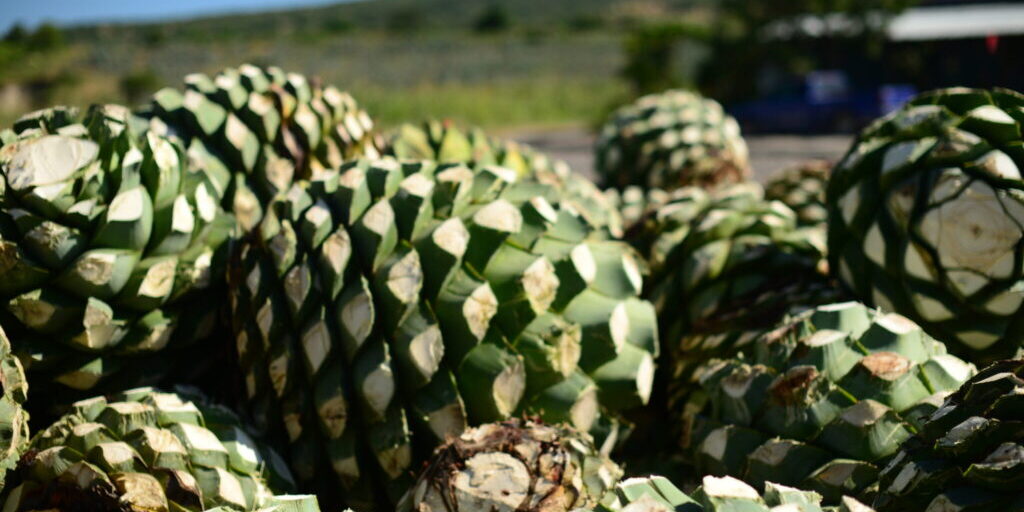Dar Una Mano Amiga – Give a Helping Hand
A Oaxacan mother and daughter defy tradition and stake their claim as women in Mexico’s mezcal industry.
By Manuela Gomez Rhine
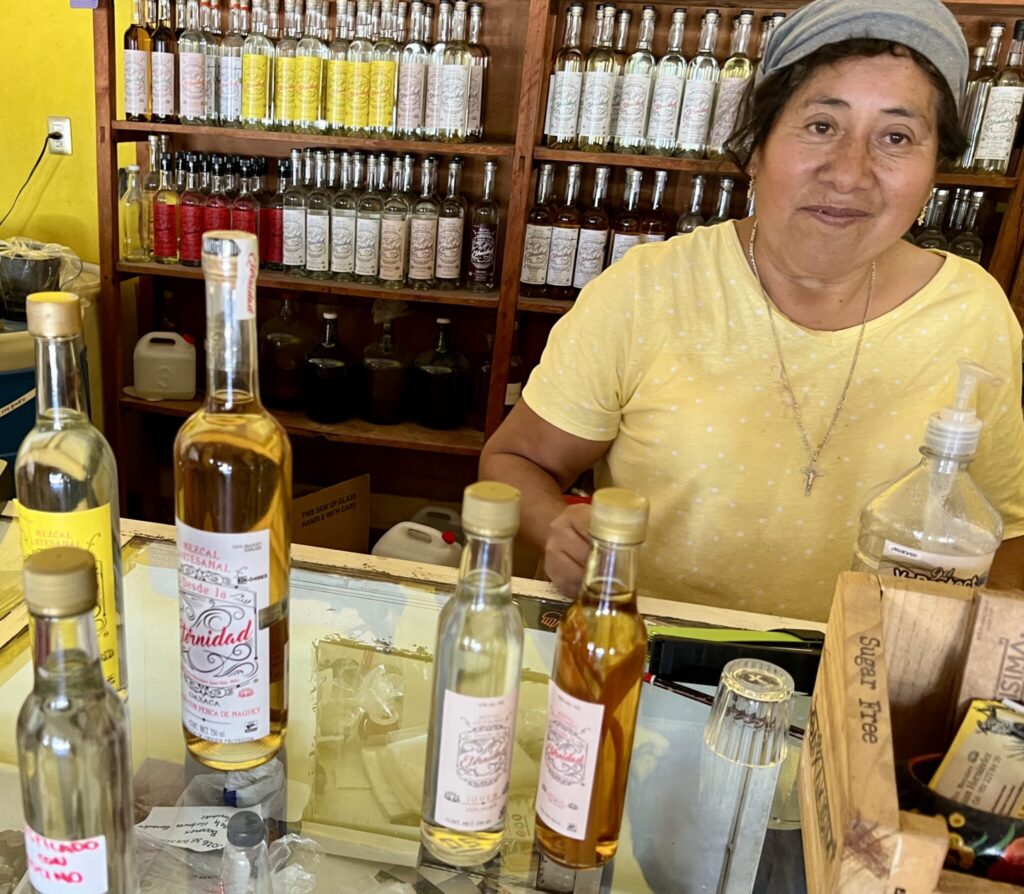
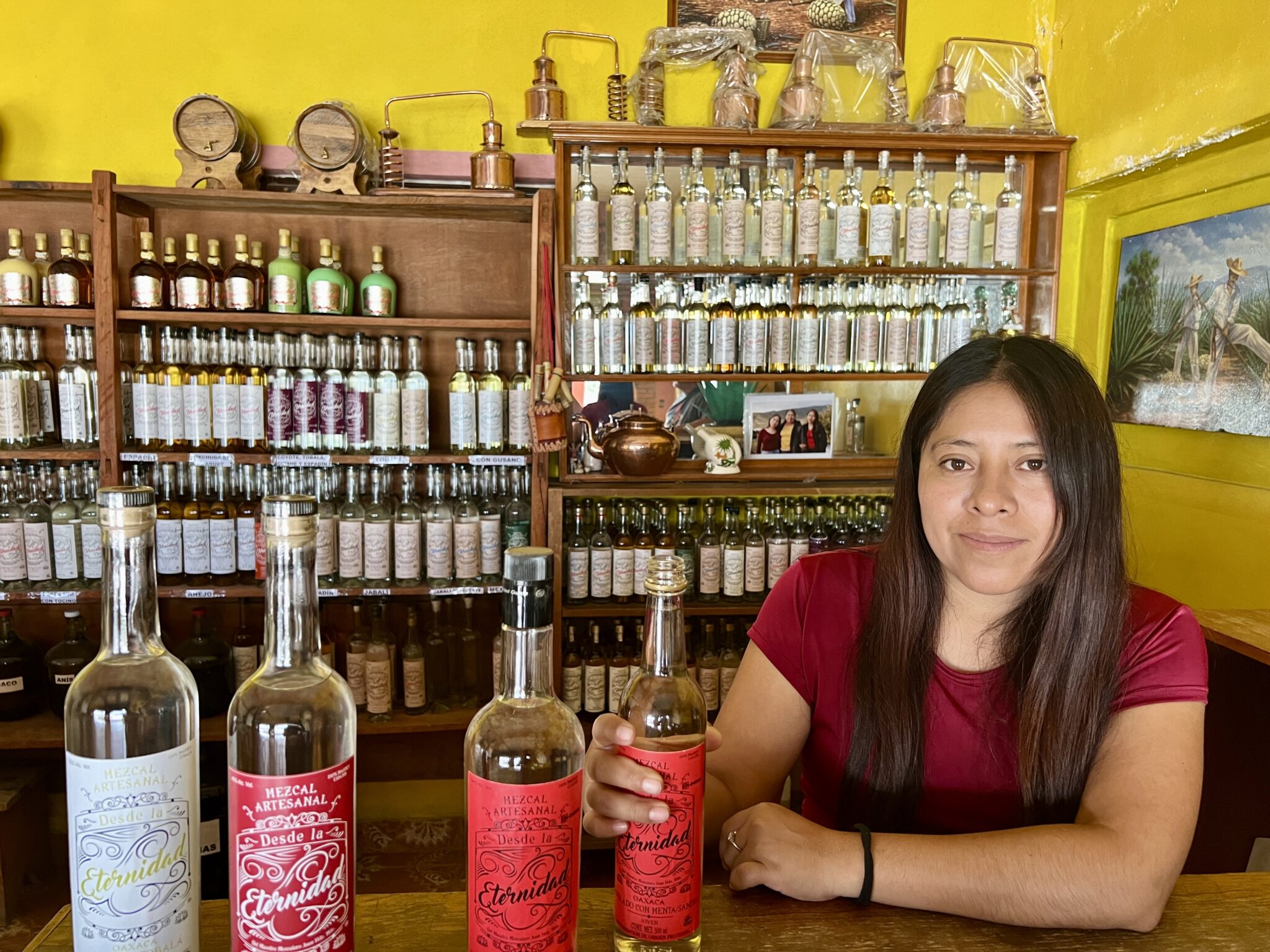
When Juan Hernández died of Covid at the age of 56, in 2020, his wife, Hortensia Hernández Martínez, was so consumed by grief, she took to bed and turned her back on everything the couple had built together at their mezcal palenque in the Oaxaca municipal of Santiago Matatlán.
Juan and Hortensia had married as teens. Both came from mezcal-making families in this region of maguey fields 25 miles south of Oaxaca City.
Standing behind the counter in the tasting room of Mezcal Desde La Eternidad (Mezcal from Eternity), Hortensia shared how Covid had upended her life. The family business is situated on the Carretera Federal Oaxaca that bisects Matatlán, the self proclaimed Mezcal Capital of the World. It is within this region of wide blue skies and red-earthed fields that maguey is cultivated to create the fermented alcohol. To the mostly Zapotec and Mixtec residents, mezcal is not just a popular booze favored by urban mixologists but a sacred spirit honored by their families for centuries.
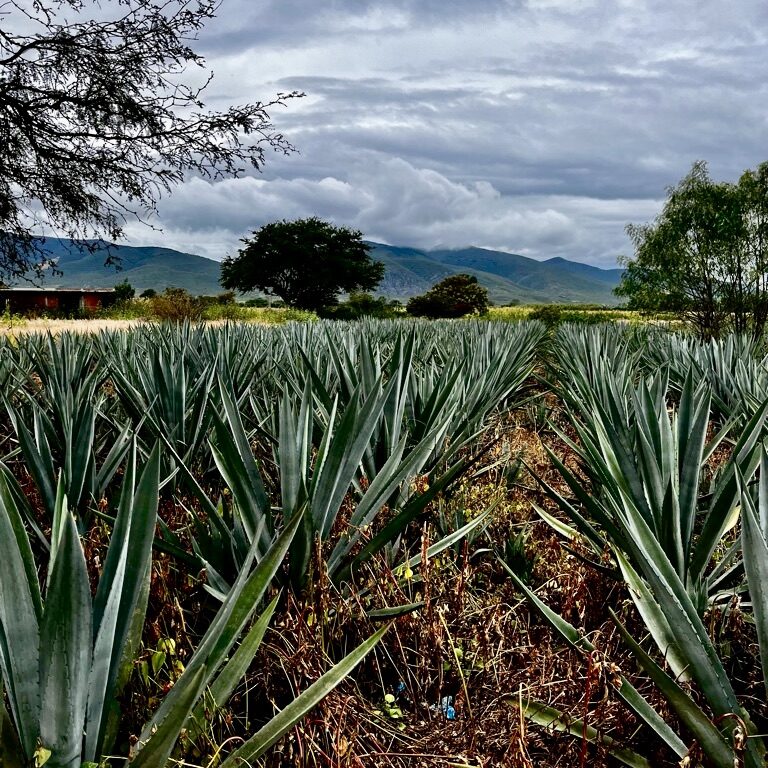
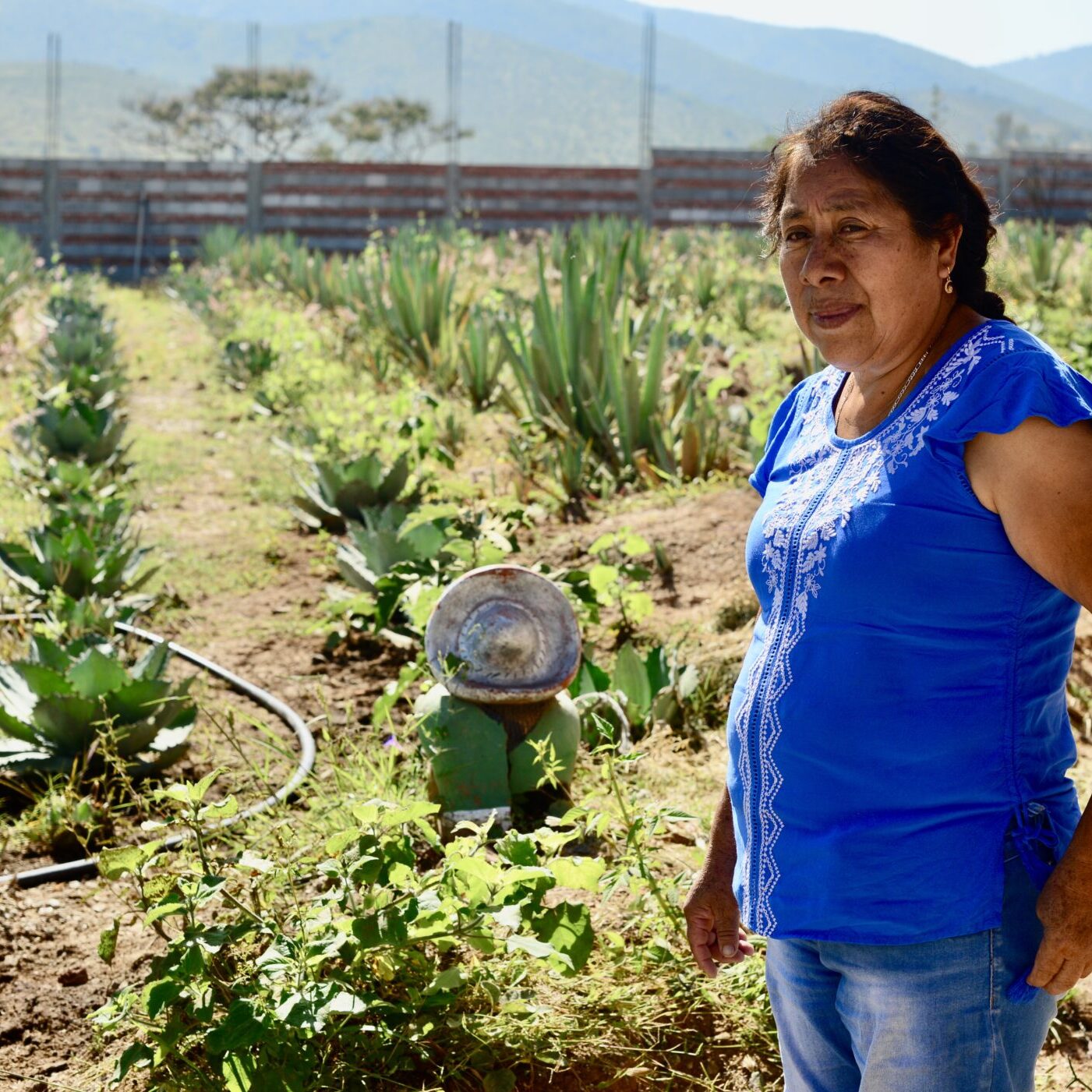
Unable to leave her bed even to work, Hortensia, now 58, couldn’t fathom how she would feed the family, let alone help Nallely, still a teen, and Lidia, in her twenties, continue their educations (Nallely in nursing and Lidia in law) something both she and Juan had desperately wanted for them.
“Juan became ill and died so quickly, it was hard for me to accept,” Hortensia said. In her anguish of losing her husband of 35 years, the widow not only ignored the business that Juan had spent his life developing, she also neglected her children, in particular the couple’s two daughters, who were also reeling from loss.
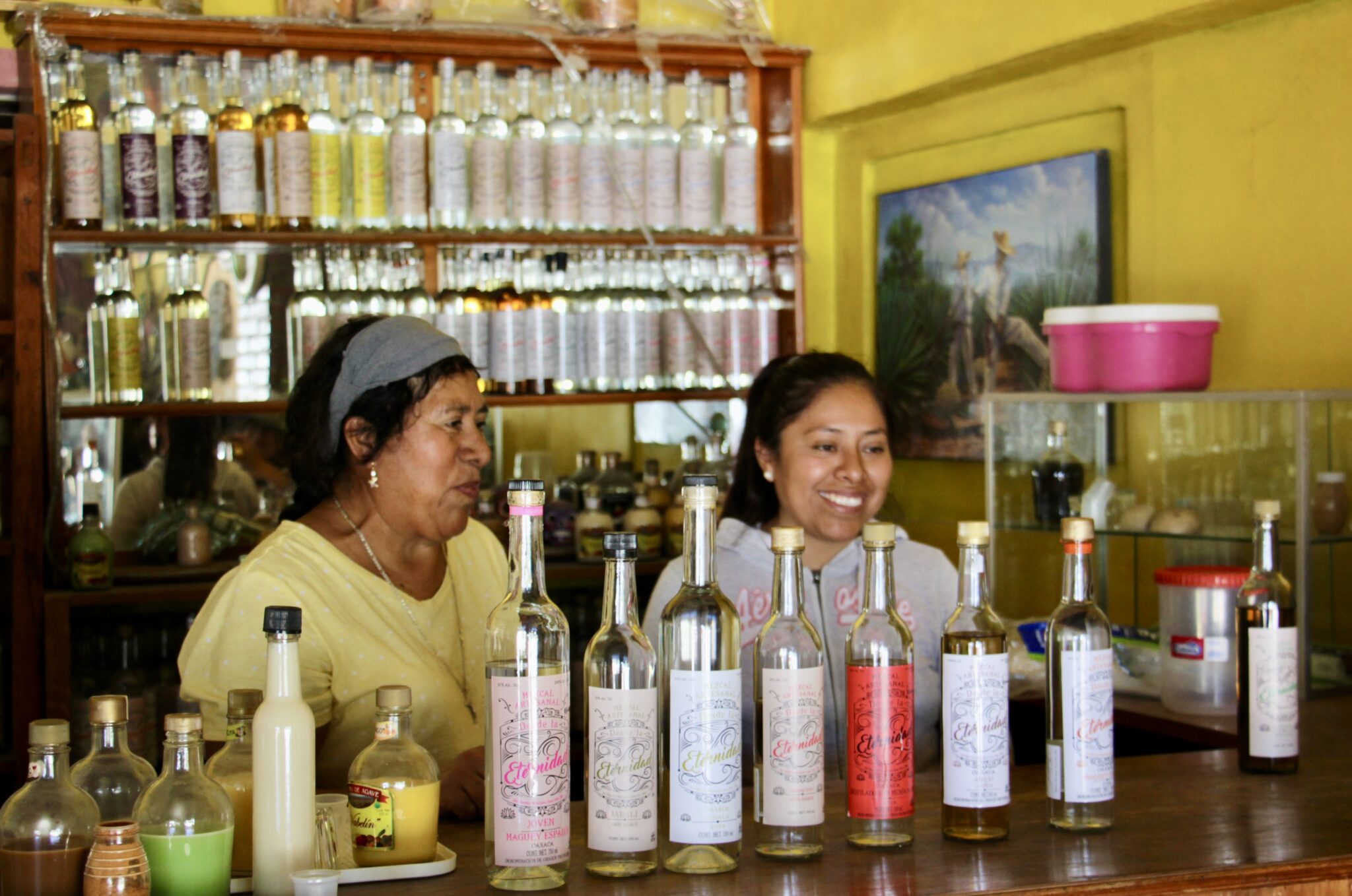
Meanwhile, the sisters, watching their mother’s depression deepen, finally made the decision to take Hortensia to see a psychologist.
The psychologist cut through Hortensia’s fog of despair with a sharp reminder. “Your husband built this palenque and you already have everything,” he said. “You have to turn yourself around.”
As Hortensia processed her grief, she saw how her despair was in fact damaging her and her husband’s dreams, for the business and family.
She also realized that her her oldest daughter, Lidia, was her greatest asset in moving Mezcal Desde La Eternidad forward. During the years that Juan built his artisanal palenque, using five generations of mezcal-making knowledge passed down through his family, it was Lidia who followed him around as he worked. As a child, Lidia was most fascinated by the processes involved in the harvesting, cooking and fermenting of maguey hearts. It was Lidia who shadowed Juan asking questions and studying techniques. Now Lidia held the golden key of knowledge.
“Lidia is the one helping me,” Hortensia said with a shy smile from within the rustic brick and concrete building, its walls painted bright yellow. “She’s the one going with me to do the job.”
Lidia, armed with a new law degree and educated in traditional practices by her father, committed fully to the life of a mezcalera, a female mezcal maker. She stepped into Juan’s shoes and began leading the way.
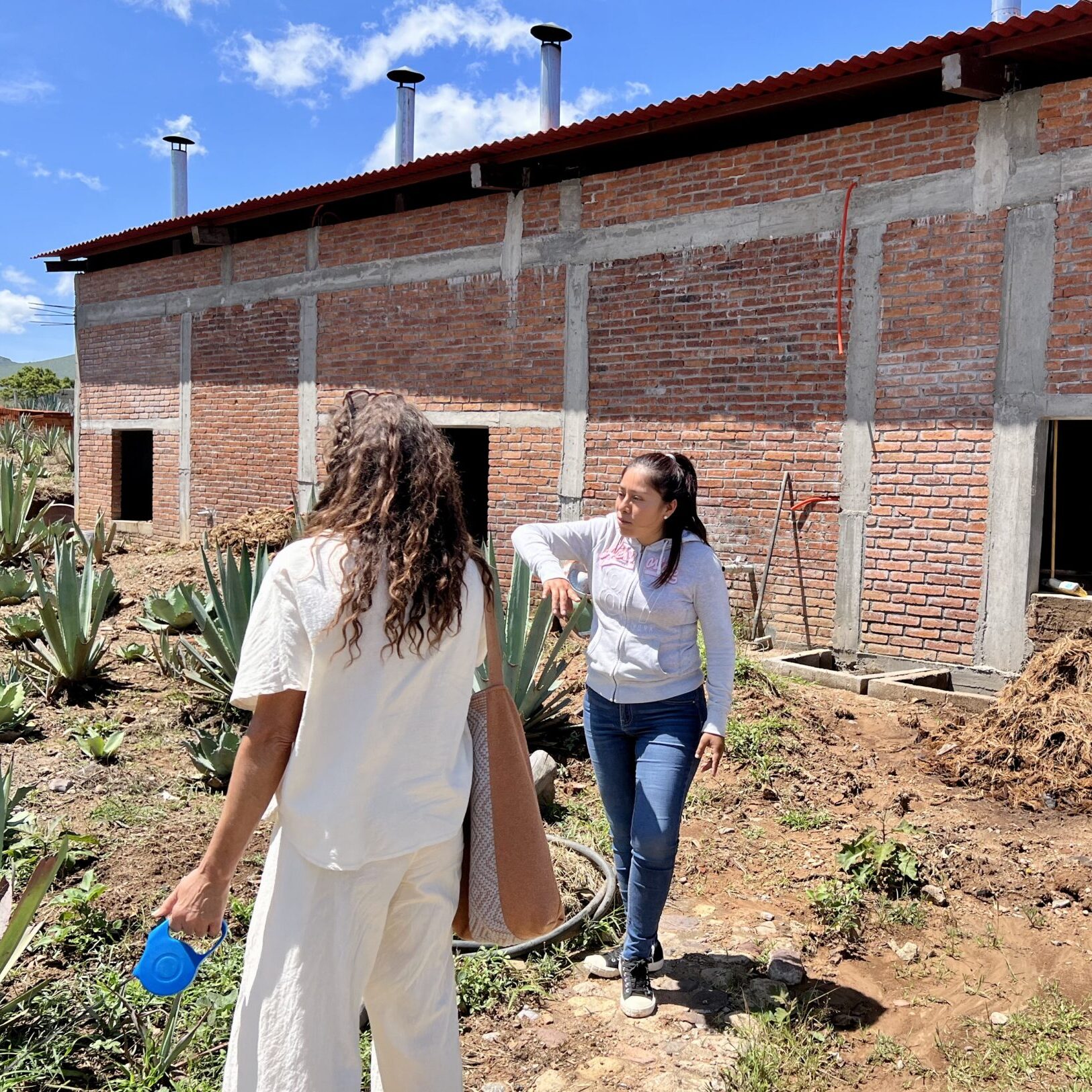
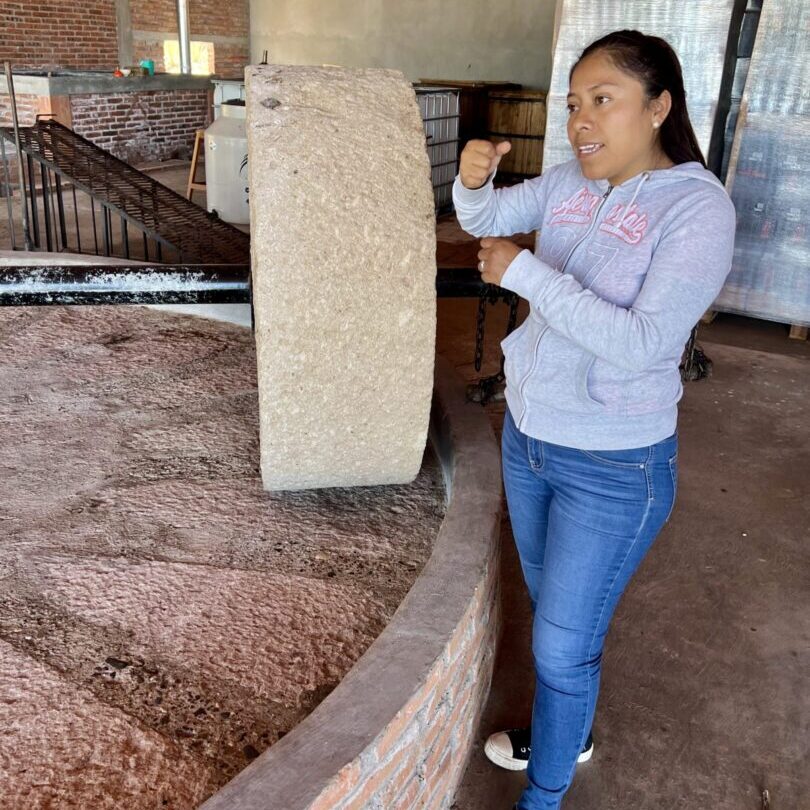
But Hortenisa and Lidia initially faced a formidable hurdle: the culture of mezcal making is still predominately male-based. Mezcaleros don’t go out of their way to welcome mezcaleras into their world. As mother and daughter ventured into the maguey fields, the workers there had no interest in taking orders from women. The men openly disregarded their new female bosses. When Hortensia asked men who had worked for her husband to perform a certain task, they would refuse or begrudgingly do so in a surly mood, she said.
Mezcal production is labor intensive. The women needed the workers’ cooperation to complete the long process that involves harvesting maguey, removing their spines and roasting their hearts (these piñas can weigh a few hundred pounds) in a huge pit filled with hot coals.
Hortenisa told the workers: “I know you are used to working with my husband but he is no longer here. So I am saying please, dar una mano amiga – give a helping hand.”
People around Hortensia repeatedly asked why she was doing "men’s work.” She began to comprehend how this mentality that pervades the region’s society could harm her daughters. Yes, she was born into a culture where education wasn’t encouraged for women who would traditionally spend their lives as wives and mothers. Among older generations of women such as Hortensia, a woman would only run a distillery because she was widowed. Hortensia decided to push against these views so that Lidia could carry on her father’s legacy. So her daughters would have opportunities she never had.
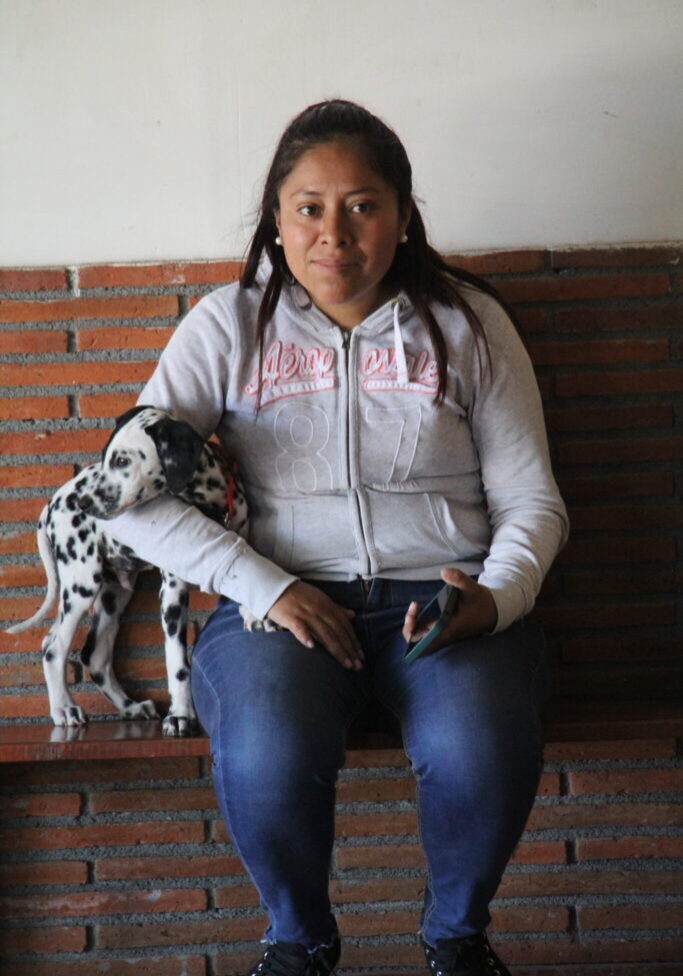
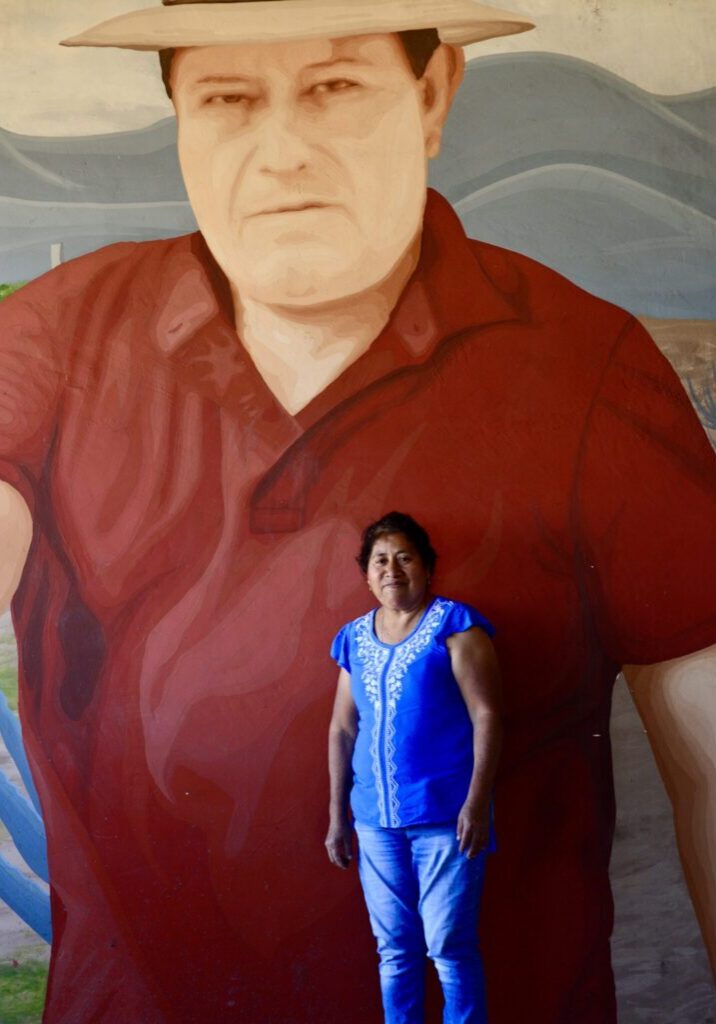
Hortensia listens to her daughters. She collaborates with them and shares ideas. In Oaxaca, a woman who starts with nothing and becomes the owner of her palenque is still rare. It’s beginning to happen with younger women, though, who share practices and support through such groups such as Mujeres Del Mezcal (Women of Mezcal).
On a recent reporting trip to Mezcal Desde La Eternidad, Mexicanista chatted with Lidia, 28, as she stood behind the tasting room counter, framed by a wall of brightly labeled mezcal bottles. Her mother, she said, had gone to help a neighbor dealing with a death in the family. As was customary in their community, Hortensia would stay with the family for three days, cooking, cleaning and providing support.
Welcoming us, Lidia poured tastes of two newly created mezcal: one infused with jamaica (hibiscus); the other a blend of mint and watermelon.
“To stand out among mezcal brands you need innovation,” Lidia said. She is developing strategies to market and sell the brand not just in Oaxaca, but throughout Mexico. (One existing client, a woman who buys their mezcal and distributes it under her own label in New York, provides steady revenue.)
Lidia conceded the path had been bumpy. Beyond needing to motivate workers unaccustomed to female bosses, the Hernández’s had been targeted by criminals who figured women-owned businesses were easy to cheat. After some product was lost to scammers posing as vendors, Lidia adopted an air of wariness she never needed before. The setback only strengthened her resolve.
As for Hortensia, she sees a clear path ahead through combining her experience with Lidia’s ideas. By building upon her husband's legacy and taking and giving a helping hand. She is positive that if other women want to enter the mezcal business, they can do so.
“If they have courage...si se puede,” she said.
Find out more at Mezcaldesdelaeternidad.com
